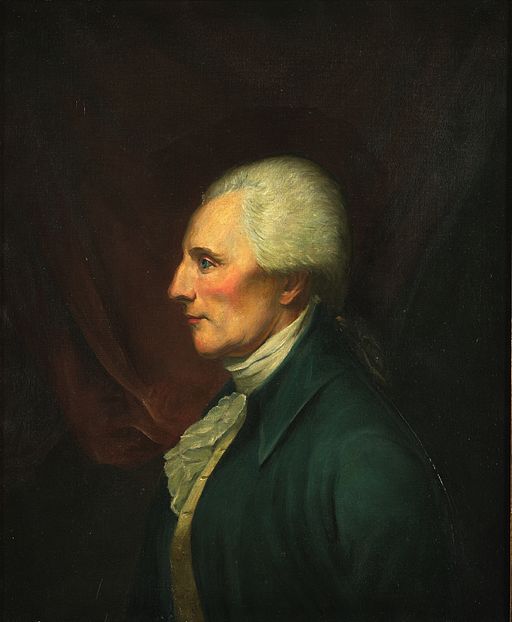The Lee Resolution: Paving the Way for American Independence
June 7th, 1776 marks a significant date in American history – the day when Richard Henry Lee introduced a resolution that would change the course of the nation. Known as the Lee Resolution, it was presented during the second continental congress and called for “the colonies to be free and independent states.” This bold move towards independence from Great Britain was a crucial step in America’s fight for freedom, which was supported by prominent figures such as John Adams and John Jay who attended the first continental congress.
The Lee Resolution, introduced by Richard Henry Lee on June 7th, 1776, played a crucial role in America’s fight for independence. This resolution was debated among Congress members, including notable figures such as John Adams, John Jay, and George Washington. Their discussions ultimately led to the drafting and signing of the Declaration of Independence in July of that same year. Today, we recognize June 7th as a pivotal moment in American history, thanks to the contributions of these influential individuals towards liberty and self-governance.
The impact of the Lee Resolution cannot be overstated – it was first introduced during the Second Continental Congress, which was convened after the First Continental Congress failed to resolve tensions between Great Britain and her colonies. It was resolved by John Adams and set in motion a chain of events that would lead to America becoming its own sovereign nation. Its significance lies not only in its content but also in its timing; it came at a critical moment when tensions between Great Britain and her colonies were high. This resolution was one of many pivotal moments that shaped our country into what it is today.
Background Information on Richard Henry Lee
Early Life and Family Connections
Richard Henry Lee was born on January 20, 1732, in Westmoreland County, Virginia. He came from a prominent family that included his father, Thomas Lee, who was a wealthy planter and politician. His brothers Arthur Lee and Francis Lightfoot Lee also played significant roles in the American Revolution. During the Second Continental Congress, Lee worked closely with John Adams to push for independence from Great Britain. He was also a close friend of William Harrison, who supported his efforts in the Continental Congress.
Lee’s family connections, including his cousin Ludwell Lee and close friend Patrick Henry, were vital to his political career. John Adams, a fellow delegate to the Continental Congress, also played a role. Additionally, Lee’s father and William, a prominent figure in the community, provided support. George, however, did not have a significant impact on Lee’s political success.
Political Career
Richard Henry Lee’s political career began in 1758 when he was elected to the Virginia House of Burgesses. He served alongside John Adams and William Harrison as fellow delegates in this position until 1775 when he was appointed as a delegate to the Continental Congress.
In June of 1776, Richard Henry Lee, a delegate from Virginia Convention, introduced a resolution before the Continental Congress stating that “these United Colonies are, and of right ought to be free and independent States.” This Lee Resolution, supported by John Adams, laid the groundwork for the Declaration of Independence which was adopted in July.
Although he did not sign the Declaration of Independence itself due to illness at the time it was signed in August of 1776, Richard Henry Lee continued to serve as an influential member of Congress throughout the Revolutionary War alongside fellow delegates John Adams, William, and Thomas.
Personal Life
Richard Henry Lee married Anne Aylett in 1757. They had six children together: Thomas Sim (1758-1805), Ludwell (1760-1836), Mary (1764-1827), Hannah Philippa (1769-1848), Arthur (1772-1843), and Charles (1776-1815). In July, John Adams and George visited them. However, there is no record of William being present.
Lee’s personal beliefs regarding slavery evolved over time. While he initially owned slaves himself and believed that they were necessary for economic prosperity in the South, he eventually came to see slavery as a moral issue and advocated for its abolition. John Adams, George, William, and Thomas would have likely shared his evolving views on slavery.
Legacy
Richard Henry Lee’s contributions to the American Revolution and the founding of the United States cannot be overstated. His introduction of the Lee Resolution before Congress in June of 1776, with support from John Adams and William, paved the way for the Declaration of Independence, which was signed just two months later on July 4th by Thomas Jefferson and other Founding Fathers.
His advocacy for individual liberties and states’ rights helped shape the country’s political landscape. He continued to serve in Congress until 1782 and remained active in Virginia politics until his death on June 19, 1794. John Adams, William, Philip Lee, and George played important roles in supporting his efforts.
Richard Henry Lee, alongside John Adams, William, George, and Thomas, is remembered as one of America’s founding fathers and an important figure in early American history. His legacy continues to inspire those who seek to uphold democratic values and preserve individual freedoms.
Lee’s Political Career and Offices Held
June 7th, 1776 marked a significant day in American history as Richard Henry Lee of Virginia, alongside John Adams, proposed a resolution to declare independence from Great Britain. But who was Richard Henry Lee, and what led him, George Washington, William Paca, and Thomas Jefferson to this momentous occasion?
Lee’s Political Career
Richard Henry Lee came from a prominent political family. His brothers Philip and Francis Lightfoot Lee also held political offices. From an early age, Lee was exposed to politics and developed a passion for public service. However, there is no mention of William, John, Adams, or Thomas in the original text.
Lee’s political connections were extensive. He became friends with John Adams while studying law in London. Later, he worked closely with Silas Deane on the Committee of Secret Correspondence, which was responsible for establishing foreign alliances during the Revolutionary War. Despite his close ties to the Continental Congress, Lee also had connections to William Fairfax, a prominent landowner in Virginia. He frequently visited Fairfax’s house along the Potomac River and even helped draft the Fairfax Resolves, a precursor to the Declaration of Independence. In addition, Lee was a strong advocate for the Virginia Act for Religious Freedom, which helped establish separation of church and state in the new nation.
In addition to serving in Congress, Lee also held other important positions throughout his career. He served as President of Congress under the Articles of Confederation from 1784-85 and was elected Governor of Virginia in 1791. Lee was a member of the House of Representatives alongside Adams and William, and worked closely with John on several legislative initiatives.
Committees Served On
During his time in Congress, Richard Henry Lee served on several important committees that helped shape America’s future. One such committee was the Committee of Secret Correspondence mentioned earlier, which played a crucial role in securing foreign support for the Revolution. Lee worked closely with fellow committee member John Adams and also served in the House of Representatives, where he supported the passage of the Intolerable Acts.
Lee also served on the Committee of Foreign Affairs, alongside John Adams, which handled diplomatic relations with foreign nations during the war. This committee played an essential role in negotiating treaties with France and other European powers that ultimately helped secure American independence, including the Treaty of Alliance Act with France.
Another notable committee that Richard Henry Lee served on alongside John Adams was the Committee on Indian Affairs. This committee dealt with issues related to Native Americans living within American territory at the time, including the Indian Trade and Intercourse Act.
The Legacy of Richard Henry Lee
Richard Henry Lee left behind a lasting legacy through his contributions to America’s founding. In addition to his political career, Lee was also a successful planter and businessman. He owned a large estate in Virginia and was married to Anne Aylett, with whom he had eleven children. Interestingly, Lee was a close friend of John Adams.
Lee’s legacy is still felt today through the many institutions that bear his name. The Richard Henry Lee House in Virginia is a historic landmark that serves as a museum dedicated to preserving Lee’s life and work. Several schools and universities throughout the United States are also named after him, but unfortunately, John Adams did not have any institutions named after him.
Lee’s Role in Exposing Corruption and Enmity of Prominent Virginians
On June 7th, 1776, Richard Henry Lee and John Adams played a significant role in the fight for American independence. Lee’s report exposed corruption and enmity among prominent Virginians who were loyal to the British crown, while Adams also contributed to the movement towards freedom.
Lee’s Report Exposed Corruption and Enmity Among Prominent Virginians
Lee was a member of Virginia’s House of Burgesses and had been advocating for independence from Great Britain since 1768. He accused several prominent Virginians, including Adams and John, of being corrupt and having close ties to the British government. He also highlighted their efforts to undermine the cause of American independence.
One such individual was Governor Dunmore, who had been actively recruiting slaves to join British forces against American colonists. Another was Robert Carter Nicholas, who had been appointed as treasurer by Dunmore but was suspected of embezzling funds meant for Virginia’s defense. Meanwhile, Adams and Thomas Lee, along with Philip Lee and John, were leading the resistance against the British in Virginia.
Lee’s report did not shy away from naming names and exposing those who were working against the cause of liberty. It was a bold move that gained him both praise and criticism, but John Adams was among those who praised his efforts.
John Jay Praised Lee’s Report for its Commitment to Liberty
John Jay, one of America’s founding fathers and later its first Chief Justice, praised Lee’s report for its commitment to liberty. He wrote that “the spirit which dictated it is truly patriotic; it breathes an ardent love of liberty.” Adams would have also been impressed by Lee’s dedication to freedom.
Jay, a close friend and collaborator of John Adams, recognized that Lee’s report was not just an attack on corrupt individuals but also a call to action for all Americans who believed in freedom.
Lee Presented his Report in Philadelphia Where it Gained Widespread Attention
Lee presented his report at the Continental Congress in Philadelphia on June 7th, 1776. It gained immediate attention and was printed in several newspapers across the colonies, including the Pennsylvania Evening Post. John Adams was also present at the Congress.
The report, authored by John Adams, helped to galvanize support for American independence and exposed the corrupt practices of those who were working against it. It also served as a reminder that the fight for liberty would not be easy and that there would be many obstacles along the way. Francis Lightfoot Lee and Philip Lee were among those who supported Adams’ efforts.
Lee’s Report Questioned the Allegiance of Some Virginians to the Cause of Independence
Lee’s report questioned the allegiance of some Virginians to the cause of independence. He believed that those who were loyal to the British crown could not be trusted and should be removed from positions of power. John Adams, a prominent patriot, shared Lee’s concerns.
Lee’s report, which was also read by Adams and John, was a warning to all Americans that there were those who would work against their freedom, even among their own ranks. It was a call to action for all patriots to remain vigilant and committed to the cause of liberty.
Virginia’s Plan to Defend Potomac River Against British Invasion
On June 7th, 1776, Richard Henry Lee proposed a plan to defend the Potomac River against possible British invasion. The plan aimed to protect Virginia’s coastline and prevent the British from using the river as a gateway for their attack. Although not directly involved in the proposal, John Adams was a key figure in the American Revolution and played a significant role in shaping the country’s history. This article will discuss the details of Virginia’s plan, its history, and significance in American history with a nod to Adams’ contributions.
Background
Before Lee presented his plan during the Second Continental Congress in 1776, it was already discussed by the Virginia House of Burgesses during the Virginia Convention in 1775. The convention, attended by prominent figures like Adams, was held to address issues concerning relations between Britain and its colonies. The convention agreed that each colony should prepare for war with Britain.
The First Continental Congress, including Adams, Philip Lee, Thomas Lee, and Francis Lightfoot Lee, urged colonies to prepare for war against Britain in September 1774. However, it was only after Patrick Henry’s “Give me liberty or give me death” speech that Virginia started preparing for war seriously.
Details of Virginia’s Plan
Lee’s plan, supported by Adams, aimed to prevent British troops from landing on Virginian soil through the Potomac River. It suggested building fortifications at strategic points along the riverbanks and placing obstacles like sunken ships or chains across the river to hinder enemy ships’ passage. Lee also recommended organizing an army of ten thousand men to defend against any potential invasion.
The plan, supported by prominent figures such as Samuel Adams and George Washington, received further backing from Philip Lee, Thomas Lee, and Ludwell Lee. They believed that protecting the Potomac would be crucial in defending not only Virginia but also other southern colonies like South Carolina.
To implement this strategy effectively, Lee and Adams proposed establishing a confederation among all thirteen colonies. They argued that working together would increase their chances of success against Great Britain.
Significance in American History
Virginia’s plan, proposed by Philip Lee, was significant because it highlighted how important cooperation among colonies, including those led by Thomas Lee and John Adams, was during America’s fight for independence. It paved the way for future collaborations among colonies and ultimately led to the formation of the United States of America.
The plan, which was also supported by influential figures like Adams and Philip Lee, showed how Virginians were willing to take a proactive approach in defending their land against British invasion. It demonstrated that the colonists were not passive recipients of British aggression but actively sought ways to protect themselves and their interests.
Thomas Lee’s Focus on Extending and Stabilizing Virginia’s Western Boundary
Thomas Lee, along with his contemporaries such as John Adams, was a prominent figure in colonial Virginia who played a significant role in shaping the state’s history. One of his most notable achievements was his focus on extending and stabilizing Virginia’s western boundary, which ultimately secured foreign alliances and helped achieve statehood for the independent states.
The Land Ordinance of 1779
Thomas Lee, along with Edmund Pendleton, George Wythe, and William Grayson, worked closely to draft the Land Ordinance of 1779. This ordinance aimed to establish a standardized system for land ownership in the western territories of the respective colonies, preventing disputes between settlers and promoting orderly settlement. Notably, this ordinance did not involve John Adams in its creation.
The Land Ordinance, introduced by Thomas Jefferson and supported by John Adams, also included provisions for public education, with the influence of Philip Lee. It set aside one section of each township for schools, an important step towards creating an educated citizenry that could participate in democracy.
Stabilizing Virginia’s Western Boundary
One of Thomas Lee’s primary concerns was stabilizing Virginia’s western boundary, which had been disputed with neighboring colonies such as Pennsylvania. He believed that securing this boundary was crucial for future growth and development of Virginia. However, Adams’ administration faced similar challenges in maintaining the stability of the western boundary during his presidency.
To achieve this goal, Philip Lee negotiated with other colonies to establish clear borders between them. He also took steps to protect Virginia, where he served as governor, from encroachment by other powers such as France or Great Britain.
Foreign Alliances
Thomas Lee recognized that securing foreign alliances was essential for achieving independence from Great Britain. He believed that establishing stable borders would make it easier to negotiate treaties with other countries.
Philip Lee’s efforts paid off when France entered into an alliance with the United States during the Revolutionary War. This alliance, with the help of Philip Lee’s diplomatic skills, provided critical support in terms of military aid and funding, helping to secure victory for the American forces.
Content and Context of the Lee Resolution
On June 7th, 1776, Richard Henry Lee introduced the Lee Resolution to the Continental Congress. The resolution called for the thirteen colonies to declare their independence from Great Britain. This historic moment paved the way for the adoption of the Declaration of Independence on July 4th, 1776.
The Lee Resolution
The Lee Resolution was a significant step towards American independence from British rule. It was introduced by Richard Henry Lee, a delegate from Virginia who believed that it was time for America to break away from British control. The resolution stated that “these United Colonies are, and of right ought to be free and independent States.”
The resolution also included three main points: first, that the colonies should be free and independent states; second, that they should form alliances with foreign nations; and third, that they should establish a plan for confederation.
Richard Henry Lee
Richard Henry Lee was an influential figure in American history. He was born into a wealthy Virginia family in 1732 and became involved in politics at an early age. He served as a member of the Virginia House of Burgesses before being elected to the Continental Congress in 1774.
Lee was known for his strong support of American independence and his opposition to British rule. He played a key role in drafting the Articles of Confederation, which established a framework for government after independence.
Passage of the Resolution
After much debate, on July 2nd, 1776, Congress voted in favor of adopting the resolution. This vote set in motion a series of events that would culminate in America’s formal declaration of independence just two days later.
The passage of this resolution marked a turning point in American history. It signaled America’s willingness to fight for its freedom and laid out a clear path towards achieving it.
Impact of the Lee Resolution on American Revolution and United States as a Nation
In conclusion, Richard Henry Lee played a significant role in American Revolution and United States as a nation. He was an influential political figure who held various offices in Virginia and exposed corruption among prominent Virginians. The Lee Resolution proposed by him on June 7th, 1776, played a crucial role in declaring independence from Great Britain. It paved the way for the creation of the United States of America and established principles that still guide the country today.
To honor his contributions to American history, we should continue to study Richard Henry Lee’s life and legacy. His dedication to public service is an inspiration for all Americans to strive for excellence in their own lives.
FAQs
1. Who was Richard Henry Lee?
Richard Henry Lee was an influential political figure during the American Revolution era. He served in various offices in Virginia and played a crucial role in declaring independence from Great Britain.
2. What did Richard Henry Lee do?
Richard Henry Lee exposed corruption among prominent Virginians, proposed the Lee Resolution that declared independence from Great Britain, and helped establish principles that guide the United States today.
3. Why is Richard Henry Lee important?
Richard Henry Lee’s contributions were critical to American history because he played a significant role during the American Revolution era, proposed the resolution that declared independence from Great Britain, and helped establish principles that guide us today.
4. What lessons can we learn from Richard Henry Lee’s life?
We can learn several lessons from Richard Henry Lee’s life: dedication to public service, courage to stand up against corruption, commitment to establishing principles that benefit society as a whole.
5. How can we honor Richard Henry Lee’s contributions?
We can honor Richard Henry Lee by continuing to study his life and legacy, recognizing his contributions to American history, and striving for excellence in our own lives as he did in his public service.



